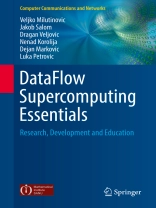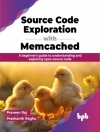This informative text/reference highlights the potential of Data Flow computing in research requiring high speeds, low power requirements, and high precision, while also benefiting from a reduction in the size of the equipment. The cutting-edge research and implementation case studies provided in this book will help the reader to develop their practical understanding of the advantages and unique features of this methodology.
This work serves as a companion title to Data Flow Supercomputing Essentials: Algorithms, Applications and Implementations, which reviews the key algorithms in this area, and provides useful examples.
Topics and features: reviews the library of tools, applications, and source code available to support Data Flow programming; discusses the enhancements to Data Flow computing yielded by small hardware changes, different compilation techniques, debugging, and optimizing tools; examines when a Data Flow architecture is best applied, and for which types of calculation; describes how converting applications to a Data Flow representation can result in an acceleration in performance, while reducing the power consumption; explains how to implement a Data Flow application on Maxeler hardware architecture, with links to a video tutorial series available online.
This enlightening volume will be of great interest to all researchers investigating supercomputing in general, and Data Flow computing in particular. Advanced undergraduate and graduate students involved in courses on Data Mining, Microprocessor Systems, and VLSI Systems, will also find the book to be a helpful reference.
Mục lục
Part I Research .- Maxeler App Gallery Revisited.- Discrepancy Reduction Between the Topology of Data Flow Graph and the Topology of FPGA Structure.-
Part II Development .- Polynomial and Rational Functions.- Transforming Applications from the Control Flow to the Data Flow Paradigm.-
Part III Education .- Mini Tutorial.












